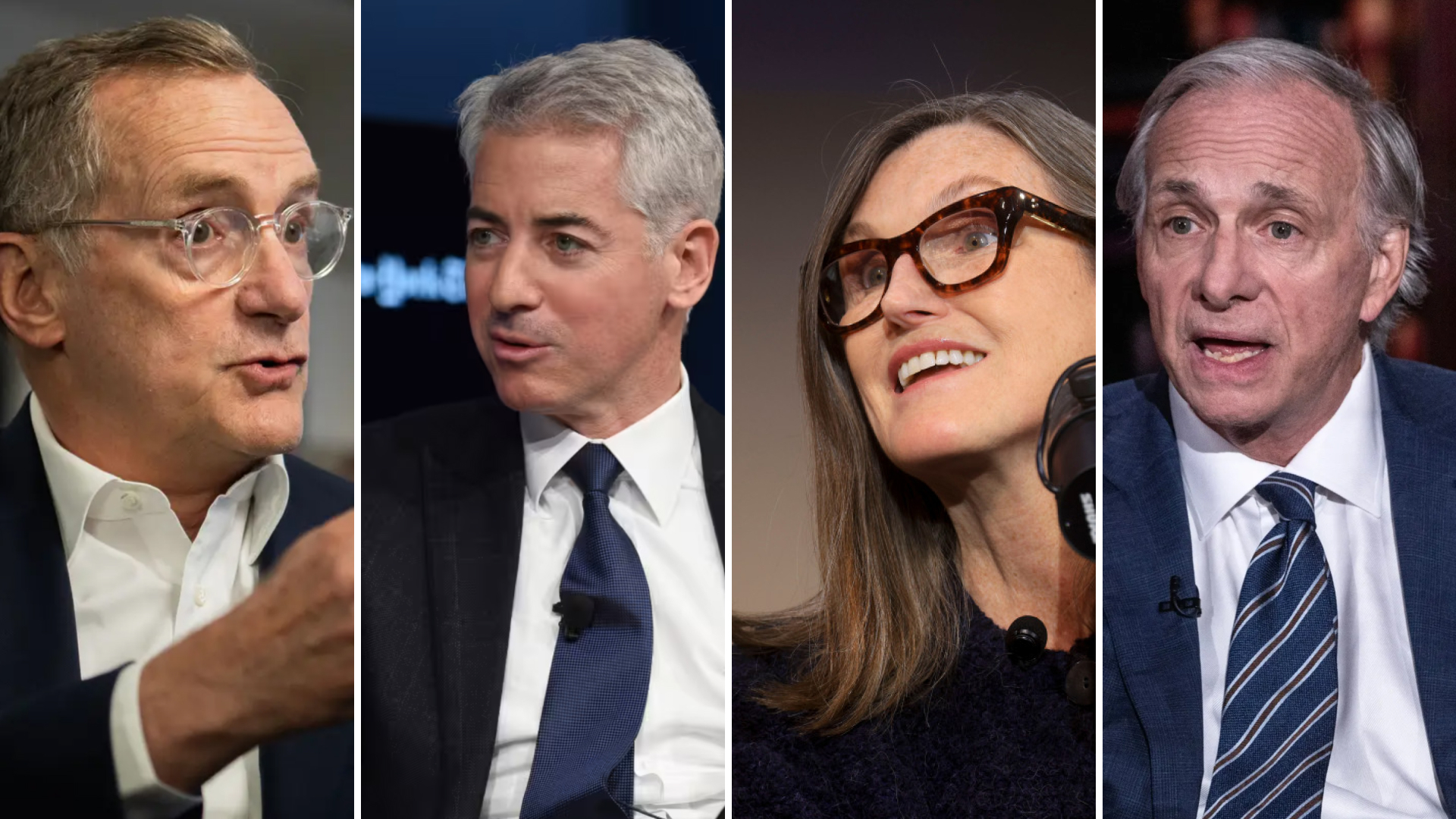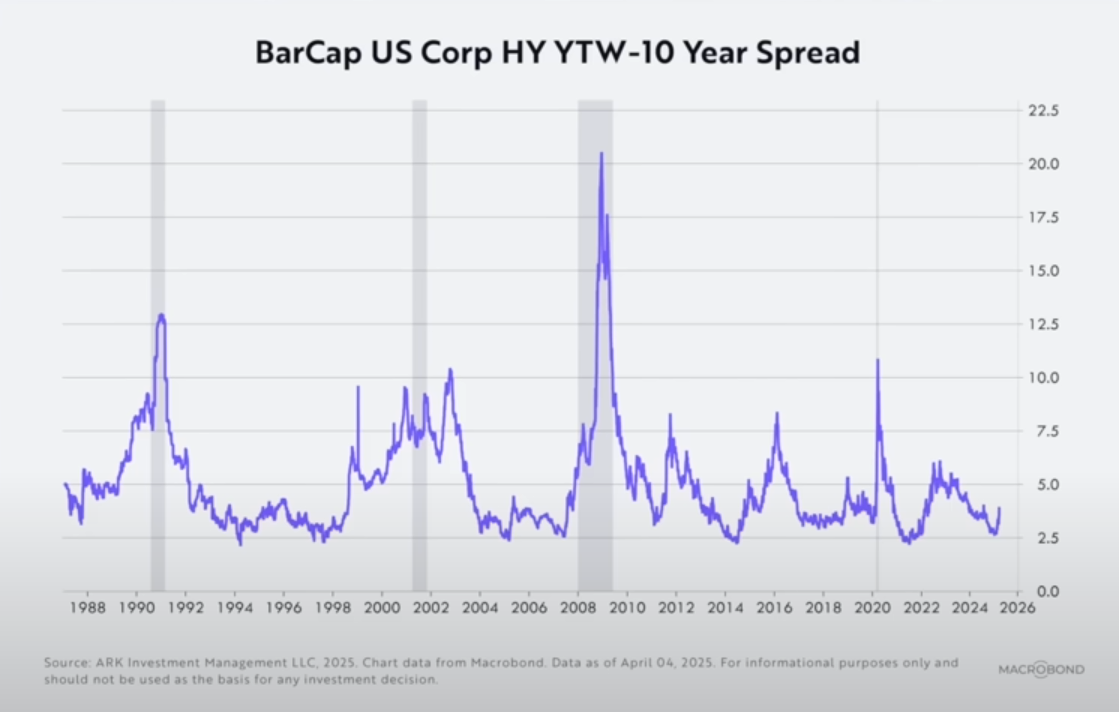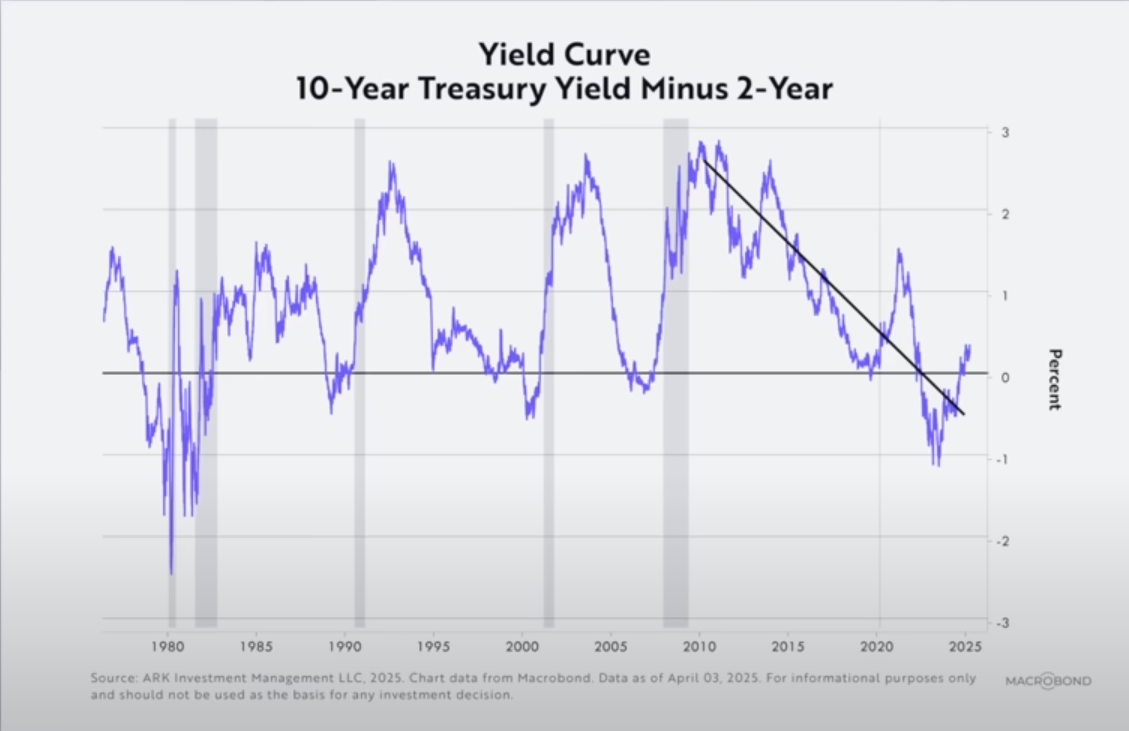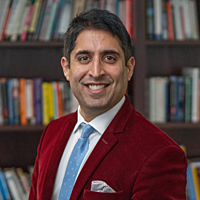How four Wall St titans are positioning right now

Friends, the Great Repricing has begun.
The rules of investing are changing. Inflation, geopolitics, technology, ideology - and the conventional market playbook - are all being rewritten in real time.
For years, investors operated under a relatively stable set of assumptions: low inflation, globalisation, steady growth, and a world where developing nations supplied cheap, commoditised goods, while advanced economies delivered high-value services.
It was a grand bargain; one that kept price rises in check, input costs predictable, and equity markets on a steady path. But that bargain is now coming undone.
Trade is fracturing. Political risk is rising. Bond markets are rudderless. Long-standing alliances are fraying. And central banks are no longer the only force shaping outcomes.
Since the turmoil that began on January 20, 2025, investors have been searching for a new roadmap, something to make sense of the chaos and chart a path through it.
To help decode this moment, I’ve pored over letters, interviews, and tweets from four of the most influential minds in global investing around Liberation Day, each the founder of a firm that has shaped market narratives for decades:
- Howard Marks of Oaktree Capital, a legend in credit and risk cycles.
- Ray Dalio of Bridgewater Associates, founder of the world’s largest hedge fund.
- Cathie Wood of ARK Invest, a pioneer in spotting exponential technologies before they hit the mainstream.
- Bill Ackman of Pershing Square, a high-conviction activist investor known for bold macro calls.
Their perspectives offer something rare: a cross-section of common sense and unconventional wisdom (just when investors need it most).
Howard Marks – Investing without a map
Howard Marks doesn’t make predictions. He offers a process.
In his recent memo Nobody Knows (Yet Again), Marks cautions against paralysis in the face of complexity. To him, today’s market confusion - tariffs, inflation, macro shocks - isn’t a puzzle to be solved, but a storm to be navigated.
“There have been no large-scale trade wars in the modern era; thus, the theories are untested," he says.
He challenges the instinct to wait for clarity, reminding investors that markets rarely reward comfort. Oaktree is actively finding opportunities in high-yield and distressed credit, precisely because others are too afraid to act.
“The decision not to act - to leave a portfolio unchanged - should be scrutinised as critically as decisions to make changes.”
Marks views tariffs as inflationary and potentially destabilising. They distort prices, suppress demand, and inject policy uncertainty into corporate strategy. The bigger challenge is that these decisions are being made by politicians, not economists—and that puts them outside traditional market models.
“It must be borne in mind, however, that whereas the negative ramifications of tariffs will probably be felt almost immediately, any gains are likely to come only in the long run, following a multi-year period of adjustment.”
Still, Marks believes “unimaginable risks” have been priced in, and it’s time to “sniff around for bargains as babies are being thrown out with the bathwater.”
Ray Dalio – The great unravelling
Ray Dalio doesn’t see tariffs as a policy misstep - he sees them as a symptom. In his Principled Perspectives series, the Bridgewater founder argues we’re entering the final phase of a “Big Cycle,” where debt, inequality, and the decline of great powers collide with geopolitical stress and societal fragmentation.
“This sort of breakdown occurs only about once in a lifetime, but they have happened many times in history when similar unsustainable conditions were in place.”
Dalio identifies five forces driving this structural shift:
- Monetary and economic instability – driven by excessive debt and fiscal unsustainability, particularly in the U.S.
- Political dysfunction in America – fuelled by vast inequality across education, income, opportunity, and values.
- Geopolitical realignment – the US is no longer the sole dominant power dictating global order.
- Natural disruptions – from droughts to pandemics, these shocks are growing in frequency and scale.
- Technological change – AI and other breakthroughs are reshaping the global economy at warp speed.
Dalio urges investors not to be distracted by the daily headlines of back-and-forth tariffs, but to focus on how these forces interact and reshape the investing landscape.
Bridgewater’s answer? Radical diversification. Dalio advocates for portfolios that not only include different asset classes, but different worldviews; real assets, geographic diversity, and inflation hedges that can perform in both deflationary busts and inflationary spikes.
He’s not predicting a market collapse, but he is warning that the assumptions of the past 40 years are unlikely to hold in the next 10.
Cathie Wood – shoCK and awe (not doom and gloom)
Cathie Wood sees the chaos, but also the catalyst.
The ARK Invest CEO believes President Trump’s aggressive tariff strategy isn’t reckless. It’s calculated.
“President Trump wants to be one of the greatest presidents ever. He’s not going to get there by throwing the economy into a recession and the stock market into a bear market."
While others brace for crisis, Wood sees a rolling recovery. “We’ve been in a rolling recession since 2022,” she told investors in her latest update. “Now we’re approaching the end of it and what comes next is a broadening bull market, led by innovation.”
She argues the fear and disruption are accelerating the adoption of transformative technologies - artificial intelligence, robotics, energy storage, blockchain, and genomic sequencing.
“These technologies have been germinating for 25 years. Now they’re moving into prime time,” she says.
And she’s backing that view with capital. On April 8 and the preceding days, ARK Invest bought nearly US$27 million combined in Nvidia (NASDAQ: NVDA) and Amazon (NASDAQ: AMZN), just before both stocks surged in the April 9 rally, with Nvidia popping 18.72% and Amazon rising 11.98%.
Wood also noted that, in a historical context, the current bond market jitters “do not look like a big deal” - particularly when comparing U.S. high-yield corporate bond spreads to Treasuries. Typically, the bond market reacts “more and earlier than the stock market,” serving as a leading indicator of stress. But that’s not happening this time.
(Note that Wood made these comments a few days before a 90-day pause on tariffs was announced by Trump, who described the bond market as looking “a little queasy”).

She believes the yield curve is pointing to something deeper: an “underlying deflationary message.” Wood draws a parallel to the roughly 50-year period leading up to the late 1920s, when transformative technologies like the telephone, electricity, and internal combustion engines were reaching mass adoption.
During that time - under the gold standard - inflation was effectively zero, and the economy experienced a persistent deflationary tendency driven by rapid productivity gains.

In that era, the yield curve was inverted by an average of 100 basis points, and at times by as much as 500. Wood is now looking for clues that we may be entering a similar dynamic, where innovation drives productivity and exerts deflationary pressure on the economy.
Wood closed by encouraging investors to stay optimistic, suggesting that much of the current market chaos could be resolved within the next 90 days.
“If Trump is on the mission I believe he is ... then he’s negotiating behind the scenes to secure deals that ultimately benefit the U.S. and perhaps in a more win-win fashion than he let on during the Rose Garden speech on Liberation Day."
Bill Ackman – Geopolitics is the new risk premium
Bill Ackman doesn’t write often, but when he does, it’s punchy.
His latest commentary calls Trump’s tariff strategy “brilliant,” arguing that what looks like chaos is in fact a high-stakes negotiation designed to put pressure on China.
“Time is not China’s friend. As more time goes by, more companies find other and better alternative suppliers outside of China.”
Ackman believes Trump has engineered a global reset with a single speech - one that, according to Trump, has over 70 world leaders scrambling to make deals and shift power back toward the U.S.
“Every U.S. company that sources products in China is in the process of finding alternative suppliers.”
For Ackman, tariffs aren’t protectionism, they’re leverage. The uncertainty they create forces faster decision-making, supply chain reshuffling, and political recalibration. Reshoring is no longer a bluff, it’s underway.
While he doesn’t provide a strict portfolio playbook, his message is clear: geopolitics is now a core input in investment strategy. Like inflation or interest rates, political strategy is moving markets and investors who wait for things to become “normal” risk missing the upside.
4 topics
2 stocks mentioned

